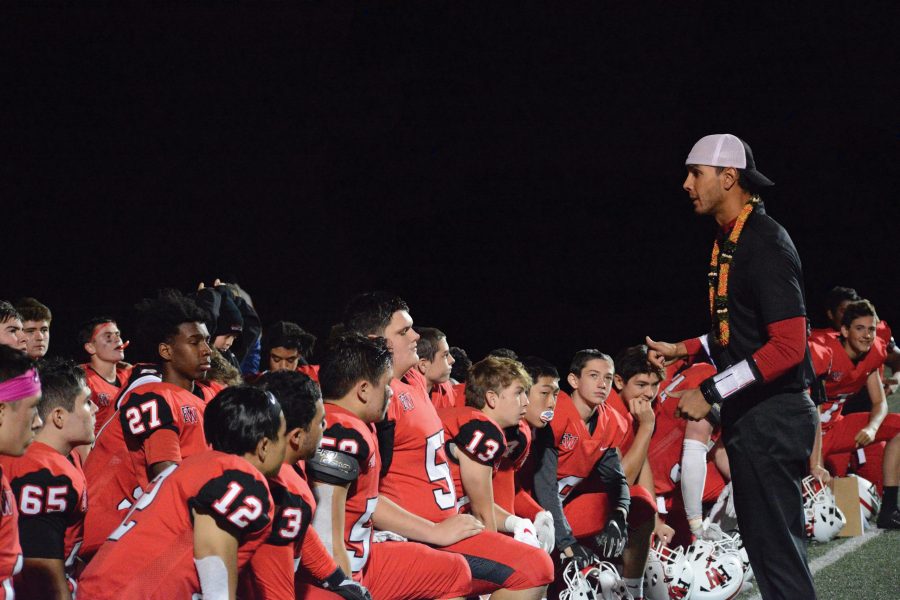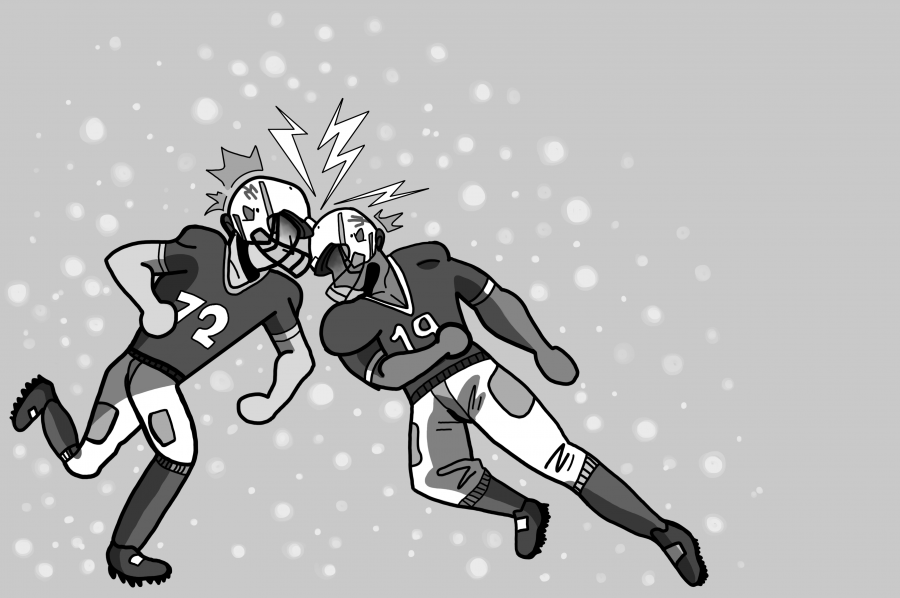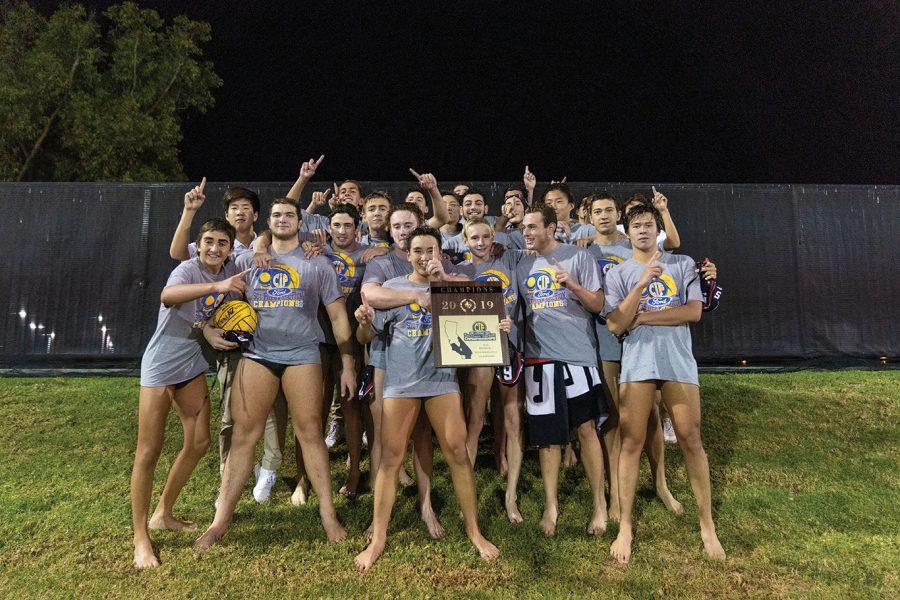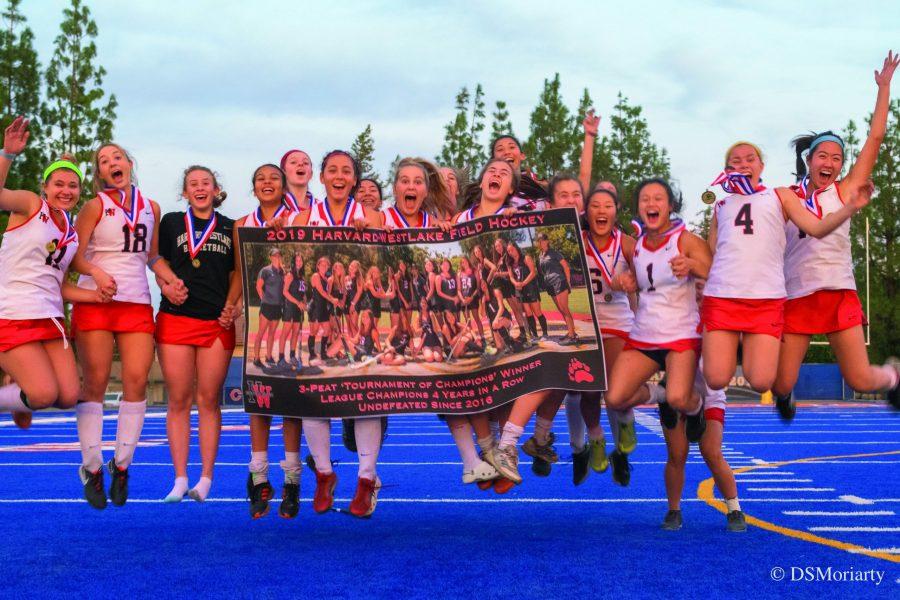It’s 7:45 a.m. Monday, Aug. 5, the first day of “Hell Week” for the football team. There arguably isn’t any time more important for the team, as this is the week when, as one player put it, “you get your shit together.” This day, however, was more important than the team anticipated. That morning, the team was told by program head Michael Burnett to arrive early before giving the team shocking news.
“Burnett called a meeting fifteen minutes before practice, and everyone thought it was just going to be a normal talk,” defensive lineman Julian Kay ’21 said. “But then he comes in, and right away you can tell the mood’s different.”
During this meeting, Burnett announced he was stepping down from his position as program head after just one year, mere weeks before the first game of the season.
“Everyone was kind of shocked, we just didn’t know what we were going to do,” Kay said.
The constant turnover of coaches is a problem that has affected the football program over the last few years. The saga began in 2017, when previous program head Scot Ruggles resigned in his sixth season with the team. Despite an 8-3 record that year, the squad lost in the first round of the CIF playoffs in Ruggles’ final game. The Wolverines looked to be in a good position to head into its next season, before, Ruggles surprisingly stepped down, linebacker Evan Roderick ’21 said.
“At first we were thinking about why he would ever step down, and then we came to the conclusion he probably didn’t ‘step down,’” Roderick said. “None of it really made sense. We went from losing a really close game in the playoffs to losing our head coach. That was a really hard day for the football program. We were coming off a super successful season, so more than anything there was a bunch of confusion about the situation.”
After Ruggles stepped down, the Athletic Department hired Burnett, who joined the program after a dominant run at Tuscarora High School in Virginia, where he went 77-24 in eight years as head coach. Coming to California, however, Burnett implemented a run style of offense that didn’t mesh well with the team.
“It was a slow transition,” Roderick said. “We’d been running the same offensive and defensive scheme for so long, so we were introduced to something entirely new and foreign, even to the state of California. It just felt like one coach knew our scheme and what was better for the team.”
After a 6-5 campaign that saw multiple starters transfer, Burnett stepped down, citing the stress of the job as a major factor in his decision. Assistant coach Ramsey Lambert was then promoted to interim program head, leading to another offseason, albeit a short one, of transition. Kay said that the most noticeable change was in the effort of the team.
“The practice styles between Lambert and Burnett are very different,” Kay said. “The way we started, it felt the same, but once we got to the actual season, in pads, the practices were shorter and the effort just wasn’t the same. It didn’t feel the same at all. With that energy and intensity, I just didn’t know how we were going to win like that.”
Now that the season is over, the Athletic Department is currently looking for a new head coach. That brings the tally up to three coaches in three years, with the search already on for a fourth. Roderick explained how this kind of rapid turnover rarely improves the fortune of the team.
“A constant coaching change is never positive for anyone,” Roderick said. “You never get used to [the constant change]. The second you start getting used to something, it changes. It’s terrible for the morale of the team. You start getting comfortable and accept what’s happening and all of sudden it’s turned to a blank slate. You can’t do anything to prepare, and change is kind of inevitable at that point.”
In a sport like football, where a team’s scheme is so important to its success, constant change can significantly hinder the growth of a team Kay said, explaining how that can affect a team’s development.
“If you have a player from freshman year, that’s playing JV, that’s developing with the same coaching staff, they’re going to be brought up to fit what type of offense or defense that team is running,” Kay said. “But if you’re constantly changing coaches, like I’ve had three new coaches my entire high school football career, every single year it’s a new one, it’s very different styles. It’s all very different, I think that the ability to be a great football program comes from being able to build up as a team and develop players. When you’re switching to very different coaches every year, it’s very hard, because there’s no space or time.”
While football is an example of too much change in leadership, the field hockey team, perhaps the Wolverines’ most successful team, is quite the opposite. Since her promotion to program head in 2006, Erin Creznic has led the field hockey team on a run of dominance never seen before. The team won championships in 2014, 2017, 2018 and 2019. Incredibly, the team is 57-0 since 2016. This means that the football team will likely have gone through four different head coaches since the most recent field hockey loss.
A team will nearly always perform better with one coach for a long period of time, and players on the field hockey team credit some of its unprecedented success to this consistency.
“I think that having one coach has benefited us significantly throughout our seasons because she knows us as individuals so well,” goalkeeper Caroline Sturgeon ’20 said. “She has been playing with most of us since seventh grade, and is able to assess our strengths and weaknesses and help us improve as players because of this.”
Midfielder and captain Rachel Brown ’20 said the same, explaining how helpful having one coach has been.
“Just the fact that I’ve had the same head coach for four years, with the same assistant coach Taylor Swezey, has made me grow,” Brown said. “It’s built a culture. Any big thing, we know we can come to her. It’s helped facilitate our team traditions, and, since nothing changes, we can grow upon ourselves. A lot is based on that system. I think because we’ve had one coach who’s really allowed us to know our boundaries and know where we can have fun, it’s allowed us to grow as a team.”
Comparing the paths of these two programs, it’s easy to see where they diverge. Some players on the field hockey team feel if they had coaching changes on the level of football, their program would not be as successful.
“[Playing with so much coaching change] would have been a lot harder because it would have felt [like] a restart every year,” Brown said. “Like three years ago, we lost eleven seniors, and if we had also swapped out the coach, it would have felt like a whole new team, whole new culture, whole new everything. The constant has been great.”
Goalkeeper Caitlyn Dovel ’21 agreed, saying that despite the team’s talent, losing a coach who knows the players so well would hurt the team.
“I think we would’ve done well skill-wise, but we wouldn’t have had the support that we needed to play tough games where other teams would get in our heads or games where there was high stress,” Dovel said. “The support we got from our coach, because she had been there for so long and knew us really well, enabled her to know how to approach us to fix problems that we were having or certain errors we needed to correct on the field.”
If the football team had more consistent coaching, lineman Vito Ameen ’20 said he thinks it would be more successful.
“I feel like as a team we could have been more competitive because we’d already be used to the system and coaching in practice,” Ameen said. “Having a new coach right before the start of the season makes it tough to adjust to the new play calling and culture. When a coach steps down unexpectedly it puts the players in a position to keep the culture that is already there or change it.”
Head of Athletics Terry Barnum said he feels coaching turnover can harm a team, and it is something the Athletic Department tries to avoid.
“Obviously we want to have consistent coaches, and in our programs that have been the most successful that is something we’ve had,” Barnum said. “We’ve had coaches who have been there for a period of time and have been able to build a program and set expectations so that everyone understands them and can see how it works over their time in the program. Anytime we have coaching turnover and change it requires adjustment, and adjustment means that it’s going to be harder to have the kind of results that you would want. We want coaches to be able to be there, and have some consistency in our coaching staff.”
Simply put, swapping out head coaches does more than changing who is on the sideline during games, as it affects player morale and the team’s performance on the field, players on both the football and field hockey teams said. Although it can be easy to focus on a team’s players and overlook its coaching, it is just as important. A steady presence, somebody who knows the team and can bring players up as a part of the team’s system, is always going to be a positive. In this case, at least, the results speak for themselves.
Coaching Culture
December 9, 2019
About the Contributor
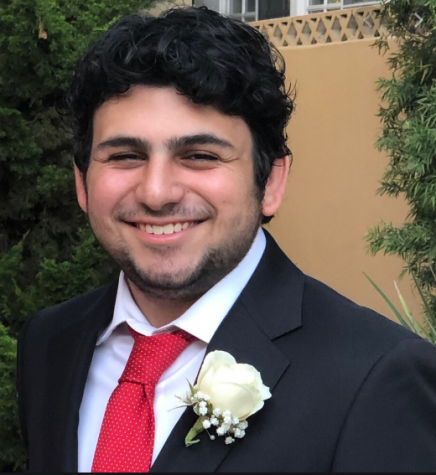
Kyle Reims, Digital Managing Editor
Kyle Reims is the Digital Managing Editor of the Chronicle, as well as Editor-in-Chief of Big Red, executive producer in the broadcast program and announcer for HWTV. Outside of journalism, he is a director of Westflix, Harvard-Westlake’s film festival. In his free time, Kyle enjoys watching sports, listening to music, and watching the Chargers lose painfully.































